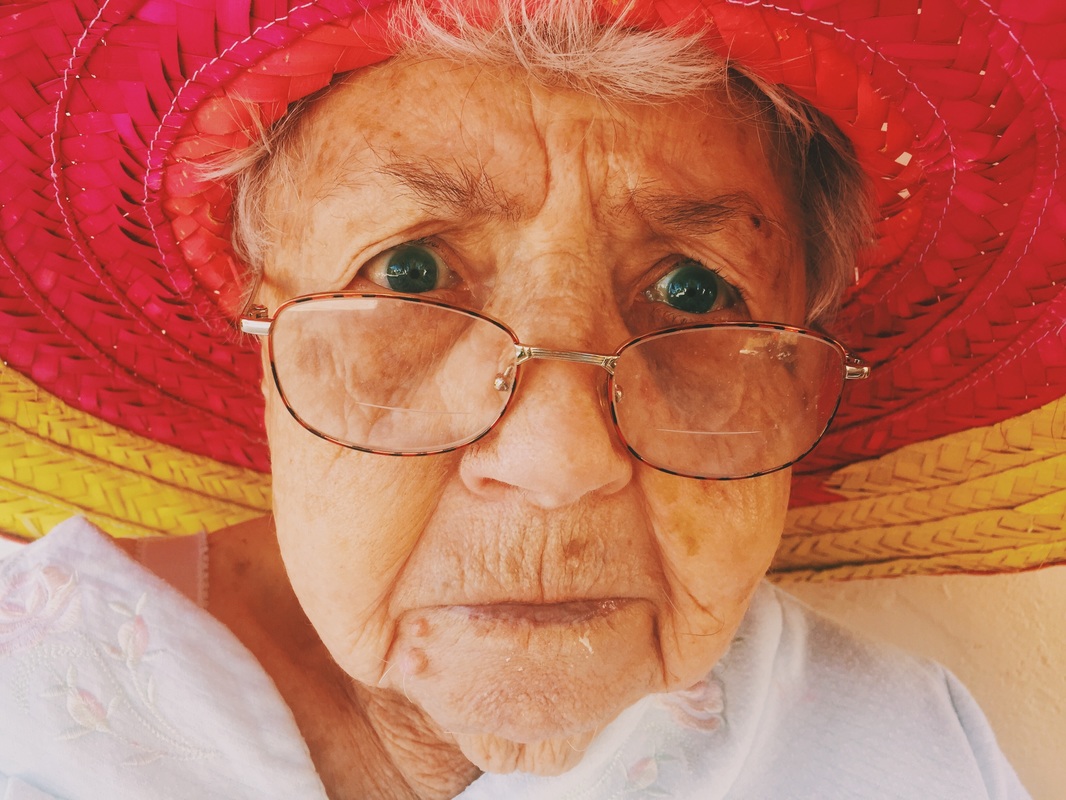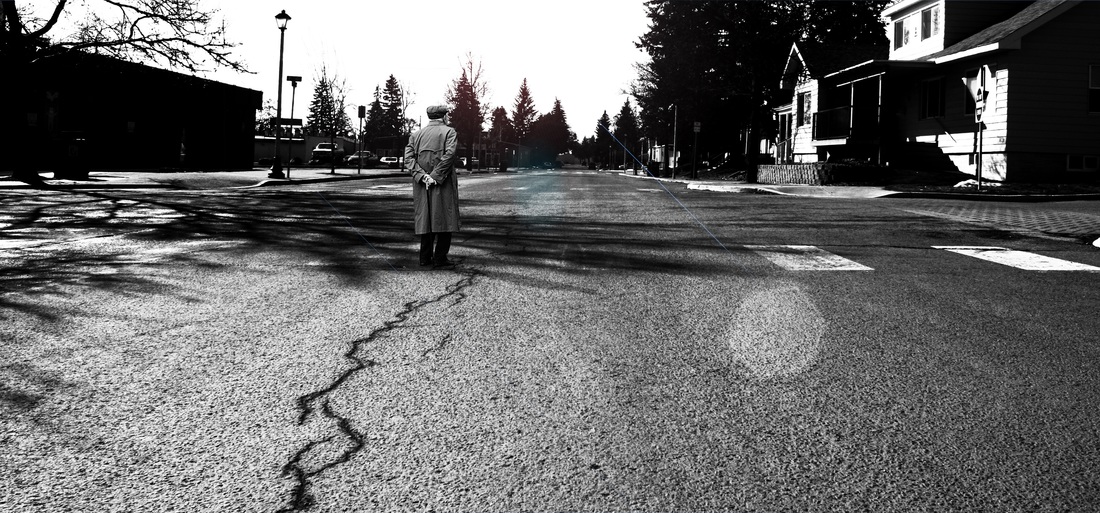 "Aging is not lost youth but a new stage of opportunity and strength." --Betty Friedan There are more than 3 billion internet users in the world today. In the UK 80% of adults have broadband connection, 61% use a mobile handset to access the internet, 72% of online adults use social networking and 66% of adults use a smartphone. There has been an increase in those aged 65+ ever going online (42% vs. 33% in 2012) and tablet use by 65-74s has trebled; from 5% to 17%. Almost all of those aged 55+ who don't have access to the internet at home (20% for 55-64s, 37% for 65-74s and 65% for over-75s) do not intend to get it in the next 12 months (15%, 30% and 59% respectively). The bottom-line therefore is that overall there has been a widespread uptake of the internet, mobile and social networking mainly amongst the younger population, but there have been significant gains in the elderly population, previously thought to be internet naive. This has laid the foundation of the digital health revolution. The social network revolution has enabled people to reach beyond their conventional groups and world, people whom we may not know and may never meet but can build safe, effective networks and communities and share experiences and practises with. Mobile technology and the internet revolution have dramatically changed the ways in which people communicate and access information. This has also liberated mankind from the confines of geography and space. Today an internet-enabled mobile device is one of the bare essentials that we carry with us along with our house keys. This has given rise to the e-patient, who is able to gather information about his condition and is empowered to self-care responsibly. The e-Patient has driven a change in the doctor/patient relationship, which was once driven by paternalism, to one of collaboration. Digital health has emancipated information from the confines of consultation and difficult to maintain and transfer records to more dynamic forms like self-tracking devices to sensors capturing various biometric data which can be transferred using cloud services to the healthcare professionals’ office and may help avoid potentially unnecessary visits to clincs and hospitals. All the health data can be entered into Electronic Health Records which can be shared with ease to facilitate continuity of care. Telemedicine, either by video, audio or text methods can facilitate a two-way communication system between the client and the provider avoiding unnecessary visits. Given the ubiquitous use and change in behaviour of the population, the question is not of whether; rather it is how we can use technology to effect change that will be efficacious, safe and cost effective. Currently one of the biggest priority for NHS is community-based care of the elderly, who consume 70% of the NHS budget. Elderly people generally are extremely wary of their loss of independence and digital healthcare will empower them to self-mange more effectively and conveniently.. Additionally the digital healthcare has potential to be more cost effective for the NHS as compared with the current conventional model of heathcare system.
Digital healthcare will enable resources to be diverted to more needy areas. However, for people who are not able to access digital healthcare for any reason, a robust traditional health delivery backup has to be present. Any new system is generally subject to enhanced scrutiny and for digital healthcare - effective, efficient and safe healthcare delivery will be key criteria for success.
3 Comments
“A good scalpel makes a better surgeon. Good communication makes a better doctor.” – Josh Umbehr, MD Last week was dominated with tales of tragedy, apprehension, despair yet hope. One thing that vicious events do is to bring people together and evoke conversation of a more personal variety. In the middle of all this contemplation and grief, I (DB) was asked by a middle aged well placed lady “I wish to have liposuction, what do you think”? She had educated herself over the net and had a formal consultation as well. At first it appeared that she was looking for a second/third opinion but on further refection it was apparent that she was expressing a failure of lifestyle interventions in the form of diet, nutrition and exercise, she had done to shed those pounds and make herself what she thought would be more attractive.She followed a strict regimental lifestyle and a multitude of fitness tracker apps to achieve her weight loss goals. Her body did not respond as well as she would like and multiple times over the last year, she changed diets as well as exercise routines. This simply did not work. She felt that she was doing something wrong but could not put a finger on it. Sometimes, she would get a bit disheartened and take a break from her own lifestyle. She was very well educated and was well aware about all the chronic diseases like diabetes and arthritis that could affect her due to overweight. Even though the yearly blood tests were still clear, a fear still lurked inside her about these conditions. This fear was not enough to sustain motivation to lose weight over prolonged period of time. The health benefits of exercise and nutrition are well known, but the question is the body perception and a positive feeling about oneself, which is very important in any kind of preventive medicine. In addition to taking care of our bodies, it is vitally important to deal with the complexities of our mind.
As much as we need medical personnel for disease related support, lifestyle personnel in the form of nutritionists and exercise specialists, we also need people who are trained in the matters of the mind to support the person in preventive care, especially to build confidence and motivate continuously, to reduce the risk of failure. Support from trained psychologists which can be accessed from a place of the patient`s own comfort may be extremely helpful. Communication today, courtesy of the internet and the mobile revolution is not just ubiquitous, but has improved in quality. It has broken geographic barriers and liberated the constraints of space. There is no better way than mobile internet to integrate all the arms of the support system to empower the person to self-care, which is the best way to prevent and manage the chronic diseases. “Now you`ve upset me. I won`t speak to you anymore”. I (DB) have known Peter for a few years now; he is a good friend, a bit temperamental yet fun loving, a loving husband and a very doting father. Although we did enjoy a laugh, I had got used to such abrupt comments once in a while. Knowing that any comments from my side would only worsen matters, I went back to my office, gathered my stuff and lazed my way down to the pub, which was the last ritual before we hit the weekend. This time it was different. As I walked in I found Peter stomping out and glaring at me with bloodshot eyes. Taken aback, I walked over to the table where the others sat in silence staring at me very disapprovingly. Angela broke the silence. “Peter says that you have been rude to him. He does not approve of your sense of humour.” John took over and began lecturing me about humour pushing the boundaries of offensiveness. I was a bit irked, because Peter always bragged about being `the funny guy`, but something had changed somewhere. Vikram brought in a bit of a management conspiracy theory and was immediately shot down and sanity was restored. For the next two weeks, I kept my distance from Peter and when he called in sick, I seized the opportunity and rang him to find out how he was. “I`m better, but will be out of action for the next two days”. Peter had been a Type I diabetic since he was 10 years old, had travelled the world, always carried his sandwiches and we all had got used to him falling ill very frequently. Of late, his sugars were all over the place and he was trying hard to get an insulin pump. Due to his frequent eating, he was now putting on the pounds. The following Monday, he returned and on the pretext that I wished to know more about the project that he was on, I sat down and asked him how he was doing. Over the last few days, he had become more and more irritable, he was having frequent arguments at home with his wife, he had lost money on an ill-advised investment for which he was now in a lot of financial difficulty, he was struggling to pay his rent and was probably not going to be able to go on his family holiday. He described that these days, with the increased fluctuation of his blood sugars, he was having more episodes of feeling hypoglycaemic and was having to eat more of his ham sandwiches that he carried with him. He described that during each such episode, he got more irritable, angry, anxious and his whole personality would change. We had noticed that during formal meetings, disagreements were a norm, but Peter would vacillate between being meek and being militant. Increasingly, he was losing the ability to see the middle path and was seen to be adopting more a path of confrontation than discussion. He was a talented chap, but was slowly getting labelled as being unreliable. Though most people understood the reasons for his absences, it was his frequent change of personalities which was getting him into situations, where his credibility had begun to be questioned.
We are now closer to Peter and he does discuss his frequent vacillations in moods with us. We support him by appreciating that he has different emotional needs and not to judge him by how he behaved sometimes as this just might be his diabetes speaking. He does need help, but everyone is unsure from whom. Of course, we haven`t discussed the pub incident. This and many more will have to be forgotten. (This is a true story and the names have been changed to protect the innocent parties) Our travels now took us to a newly qualified GP, in the first six months of her practice. A brilliant student in her times, a wife and mum to a boy, she juggled family and professional life with great aplomb. Always positive about life, it was always very difficult to get any criticism out of her, unless things were completely unbearable. After a few brief pleasantries, the conversation shifted to her experience as a new GP and as expected she said that her life could not have been better and finally, she was on course to fulfilling her dream. The conversation meandered on and after a few pit stops like work-like balance and sharing responsibilities at home it came down to her experience in managing chronic diseases specifically diabetes. It was quite amazing to see her grasp and knowledge of the subject, the thoroughness of her approach and the pains and great effort that she took to give the best possible care for the ones that she was responsible for. We felt extremely reassured and proud of the British medical training and healthcare systems that we are in safe hands. “Then why is it that the National Audit Office is so critical about diabetes management in the UK? And why is it that the problem does not seem to abate?” Then the penny dropped. It is extremely difficult to put a finger on what the problem is and even more difficult to find what the solution is. All newly diagnosed diabetics are put on a structured education programme and people who have attended it report that this is an excellent programme. But most people don`t attend and “people with jobs simply don`t”. In a climate where jobs are not particularly easy to come by and leave to attend these is discretionary subject to the employer`s altruism, nobody wants to fall behind in the race. There is also a perception of the patient`s apathy, the cause for which is individual and not easy to ascertain. All people who do not attend clinic appointments or miss blood tests are sent reminders and sometimes, she herself pays home visits. “Even then they do not come”. Nobody admits to not taking medicines, but in a lot of cases, test results show otherwise. This creates a bigger problem, because on the one hand there is a suspicion of under dosing, if the person were to be believed and needs dose escalation and on the other hand if the person is not being truthful, any intervention could be disastrous. There is no objective way to decide either way, but the results of both are far from ideal. Unfortunately, this is the norm rather than the exception. This is a situation that all health care professionals are prepared for and everyone vows to tackle in a different way, but the reality is that what it leads to is despondency and frustration in the healthcare team and thus results are far from optimal. Despite all the healthcare professional`s best possible intentions and efforts, some people don`t bother with anything and are sometimes skeptical and cynical and continue in their merry ways. A time comes when enough is enough and these people are `lost to the system`, `non-adherent` or simply vanish from attention. Some of them resurface as medical or even surgical emergencies in secondary or tertiary care and their lives are changed for ever. At these moment, we paused to look at the National Audit Office`s statistics and paused to think, whether there was any solution to what is being termed as apathy or non-adherence. The problems may be extremely individual, something that we are not aware about. We are probably trying to solve a problem, when we do not know what the real reasons are. We do not know what happens between a blood test and an appointment or even a missed one. A 10 minute appointment is grossly inadequate to know someone. A letter from the surgery probably intimidates the person more than helps him or her. And as the vicious cycle of summons and absences continues, maybe we are distancing ourselves from the people we set out to serve. Maybe they are reticent in telling us what their real issues are, maybe they find us too intrusive, maybe a trust deficit and overall.
We are not particularly sure whether the current healthcare set up actually provides a great client experience. We probably need to take the healthcare to the person, instead of the patient coming to healthcare. It is probably no longer enough to say that the person does not listen. It is time to take responsibility and improve the client experience. Maybe it is time to engage people in their places of comfort, unless it is absolutely necessary to drag them to healthcare facilities. There is no point in having an excellent education programme and people not going to it. More resources are spent in tracing and chasing people than actually treating them. And when everything fails, resources and lives are lost once people have complications and admitted to hospital. The current budget deficit is clamouring loudly for bringing healthcare closer to people, understanding and managing the person as a whole with emotional support and behavioural intervention along with the present extremely erudite system. What we can do is take responsibility and improve the overall client experience, which motivates patients in such a way that they understand and embrace their problems and lead a life of fulfilment. The best possible way is to give people the opportunity of interacting with healthcare from places where they are comfortable like homes and places of work. |
AuthorsDebashis Archives
December 2016
|












 RSS Feed
RSS Feed
